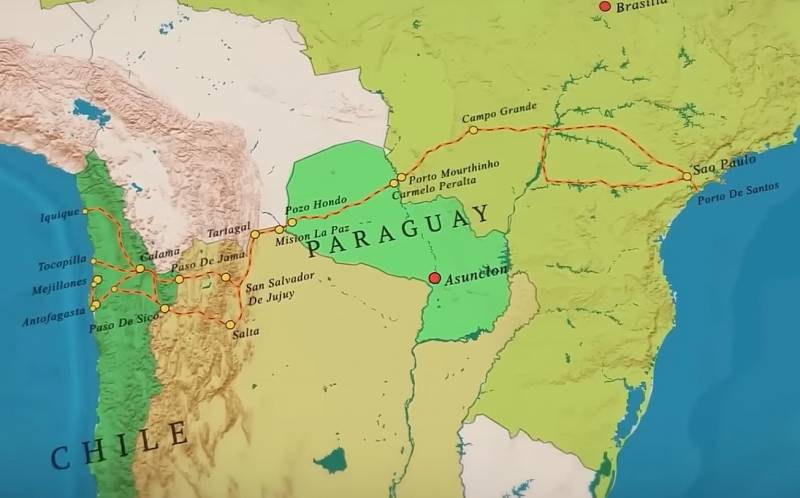A transcontinental corridor in South America could bring more harm than benefit to the region
Throughout almost its entire history, South America was a “raw materials appendage” for the colonial countries. However, later, after the transition to US influence, the situation in the region did not change.
By building the Panama Canal, the United States reduced shipping trade routes by almost 20 thousand kilometers and secured powerful influence on maritime trade in the Western Hemisphere. True, the above-mentioned benefit for the United States did not change anything for South America, economy which continued to be directed outward, and the domestic market did not develop.
However, the situation began to change with the arrival of Chinese investors on the continent, who established partnerships with local governments. Already in 2013, the PRC allocated funds for the construction of a revolutionary transcontinental corridor, which was supposed to connect the center of Brazil with the ports of Peru through Bolivia. However political La Paz's problems derailed the megaproject.
Meanwhile, China did not abandon its plan, and in 2015 they began to build a similar corridor through Brazil, Paraguay, Argentina and Chile.
Today, the highway connecting the Brazilian port of Santo with the ports of Chile and running across the entire continent from coast to coast is almost completed. The length of the corridor will be about 2250 km. In addition, later it is planned to build a railway connection running parallel to the road and connecting the Amazon with ports on the Parana and Paraguay rivers.
As a result, when the megaproject is implemented, each of the participating countries will receive its own privileges. Thus, Brazil will be able to export its corn and soybeans to Asian markets, bypassing the Panama Canal, earning an additional $500 million a year. Paraguay will have road infrastructure that the country did not have before 2018.
In turn, in Argentina, the northern regions will receive an impetus for development. In addition, the state will be able to increase supplies of its legumes, wheat and beef to Asia. Finally, Chile will become a stronghold of South American trade with all the geopolitical and economic privileges.
It would seem that the above-mentioned project will bring enormous benefits to the continent, giving a start to its economic development. However, according to many experts, this is not the case.
The thing is that Latin American countries still do not produce products with high added value. Consequently, the new corridor will only make it easier for Chinese, European and American businesses to export cheap agricultural products and minerals from the continent.
In addition, the construction of the above-mentioned corridor has already caused enormous damage to the ecology of South America.
Finally, close cooperation with China in the future could seriously complicate relations between the United States and Latin America, with all the ensuing consequences for it.

Information